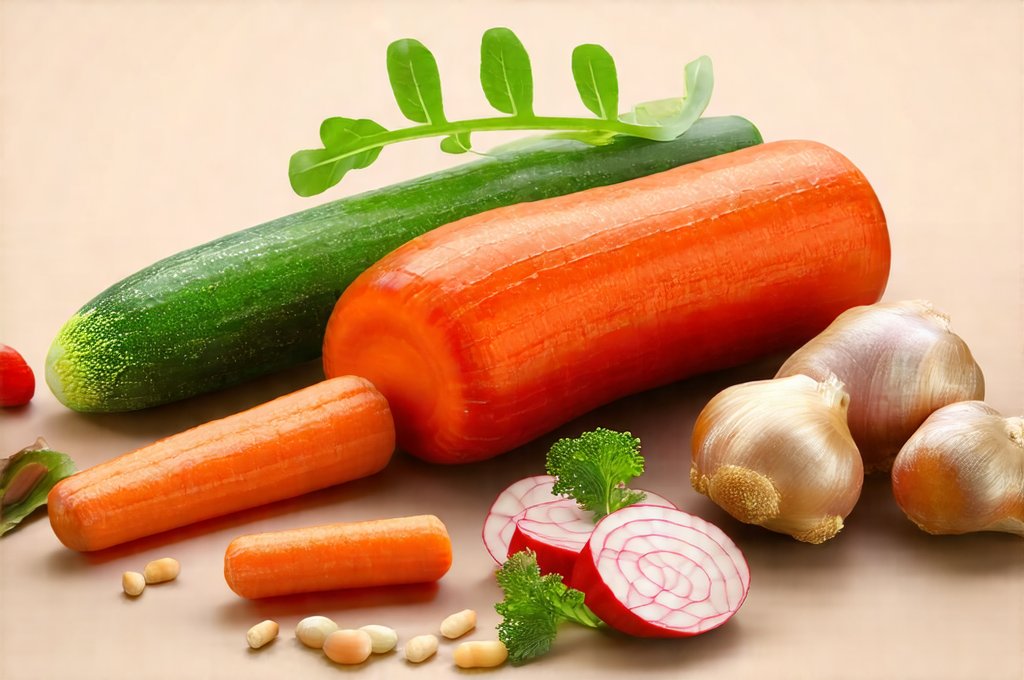The modern Western diet, characterized by processed foods, refined sugars, and an abundance of palatable but nutritionally sparse options, often leaves our digestive systems struggling to keep up. We’ve largely engineered out the naturally bitter flavors that once formed a crucial part of ancestral diets, leading to a potential disconnect between what our bodies evolved to process and what we now commonly consume. This disconnection isn’t necessarily about illness; it’s more about optimization – helping our digestive systems function at their best, supporting nutrient absorption, and fostering overall wellbeing through thoughtful food choices. Many individuals experience subtle digestive discomfort—bloating, gas, indigestion—that may not be severe enough to warrant medical intervention but significantly impacts quality of life. Reintroducing bitter foods can be a surprisingly effective strategy for gently nudging the digestive system back into balance.
The role of bitterness isn’t merely about taste; it’s deeply interwoven with physiological processes. Our bodies are equipped with bitter taste receptors not just on our tongues but throughout the gastrointestinal tract, signaling to various organs to prepare for food arrival and optimize digestion. These receptors trigger a cascade of events that stimulate digestive secretions – increasing saliva production, activating stomach acid release, promoting pancreatic enzyme secretion, and enhancing bile flow from the gallbladder. This pre-emptive strike ensures that when food reaches different stages of digestion, the necessary components are ready to break it down efficiently. Furthermore, this stimulation isn’t about forcing digestion; it’s more akin to priming the pump, gently encouraging natural processes to unfold rather than overwhelming them with a sudden influx of food without adequate preparation. Understanding how digestive enzymes contribute can further refine this process.
The Digestive Cascade & Bitter Stimulation
The digestive process is far from a passive event. It’s an intricate sequence of coordinated actions beginning even before we take our first bite. Anticipation of food triggers the cephalic phase of digestion, where the brain signals to the stomach to prepare for incoming nourishment. This sets the stage for optimal breakdown and absorption. However, if this initial signal is weak or absent—perhaps due to a lack of stimulating flavors—the digestive system may struggle to efficiently process what follows. Bitter foods act as a natural cue, intensifying this cephalic phase and initiating the necessary preparatory steps.
Think of it like warming up before exercise. A proper warm-up prepares muscles for exertion, minimizing risk of injury and maximizing performance. Similarly, bitter flavors ‘warm up’ the digestive system, enhancing its capacity to handle incoming food. This is particularly important for individuals who tend to eat quickly or consume large meals, as a robust digestive preparation can help mitigate discomfort associated with rapid processing. The stimulation extends beyond just the stomach; it reaches the pancreas, prompting enzyme release necessary for breaking down fats, proteins and carbohydrates, and the gallbladder which releases bile, crucial for fat digestion. Recognizing the importance of gut microbiota can also assist with overall digestive health.
Moreover, this process isn’t merely about speed; it’s about completeness. When digestive secretions are inadequate, food may pass through the system too quickly, resulting in poor nutrient absorption. This can lead to deficiencies even with a seemingly healthy diet. By promoting thorough digestion, bitter foods help ensure that we extract maximum nutritional value from our meals and reduce the likelihood of undigested food causing bloating or other discomforts. A well-functioning digestive system is also supported by incorporating synbiotics.
Beyond Digestion: Liver Health & Detoxification
The benefits of bitter foods extend beyond just improved gut function; they play a significant role in supporting liver health and natural detoxification processes. The liver is often considered the body’s primary detoxifying organ, responsible for filtering toxins from the bloodstream and preparing them for elimination. Bile, produced by the liver and stored in the gallbladder, is essential not only for fat digestion but also for removing waste products from the body. Bitter foods stimulate bile production, enhancing this crucial detoxification pathway.
This increased bile flow helps to emulsify fats, making them easier to digest and absorb while simultaneously carrying toxins out of the system through stool. A sluggish liver often results in a buildup of toxins, potentially leading to fatigue, skin problems, or other health concerns. Incorporating bitter foods can therefore be a proactive step towards supporting optimal liver function and promoting overall wellbeing. It’s important to note that this isn’t about ‘detoxing’ in the restrictive sense often promoted by fad diets; it’s about supporting the body’s natural detoxification mechanisms, allowing them to operate efficiently without being overwhelmed. Don’t underestimate the role of fermented foods in promoting a healthy gut environment.
Furthermore, many bitter foods are also rich in compounds known to support liver health directly. For instance, dandelion root and artichoke contain specific phytochemicals that protect liver cells from damage and promote regeneration. These aren’t simply ‘detox’ ingredients; they are nutritional powerhouses supporting the long-term health of this vital organ.
Incorporating Bitter Foods into Your Diet
The challenge with modern diets isn’t necessarily a lack of food, but a lack of flavor diversity, particularly bitter flavors. Reintroducing bitterness doesn’t require drastic changes or restrictive regimes; it’s about incorporating small amounts of these foods regularly. Start slowly, as overwhelming the palate can lead to aversion. Begin with one or two bitter elements per day and gradually increase as tolerated.
- Leafy Greens: Arugula, radicchio, endive, and even dandelion greens are excellent sources of bitterness, offering a nutritional boost alongside digestive benefits. Add them to salads, sauté them lightly, or blend them into smoothies.
- Cruciferous Vegetables: Broccoli, Brussels sprouts, kale, and cabbage contain compounds that stimulate detoxification pathways and provide essential nutrients. Roasting these vegetables can help mellow their bitterness while retaining their health benefits.
- Herbs & Spices: Turmeric, ginger, cumin, and fennel seeds all possess subtle bitter notes and offer potent anti-inflammatory properties. Use them generously in your cooking to add flavor and support digestive health.
Consider incorporating a small amount of apple cider vinegar diluted in water before meals—its tartness contains a degree of bitterness that can stimulate digestive secretions. Herbal teas made from dandelion root, artichoke leaf, or gentian are also excellent options for introducing bitter flavors in a palatable way. Remember to listen to your body and adjust the quantity based on your individual tolerance.
Bitter Herbs & Digestive Bitters
Digestive bitters – concentrated liquid extracts containing a blend of bitter herbs – offer a convenient way to reap the benefits of bitterness, especially during times when incorporating whole food sources is challenging. These are typically taken in small amounts (5-10 drops) before meals to stimulate digestive secretions. However, it’s essential to choose high-quality bitters from reputable sources and avoid those containing excessive sugar or alcohol.
- Gentian: Considered the quintessential bitter herb, gentian is highly effective at stimulating stomach acid production.
- Dandelion Root: Supports liver function and bile flow, promoting detoxification.
- Artichoke Leaf: Aids in digestion of fats and reduces bloating.
- Chamomile: Offers a calming effect alongside gentle digestive support.
When using bitters, start with the lowest recommended dose and gradually increase as needed. Individuals with certain medical conditions – such as ulcers or gallbladder issues—should consult with a healthcare professional before using digestive bitters. These are potent extracts, and responsible usage is key. They are intended to be a supporting tool, not a replacement for a balanced diet and healthy lifestyle.
Addressing Potential Concerns & Individual Sensitivities
While generally well-tolerated, bitter foods can cause some individuals to experience mild discomfort initially. This is often due to the body adjusting to the increased digestive stimulation. Start slowly, as mentioned earlier, and pay attention to your body’s signals. If you experience significant bloating or gas, reduce the quantity of bitter foods or take a break for a few days before reintroducing them gradually.
- Histamine Intolerance: Some individuals with histamine intolerance may react negatively to certain bitter foods, such as fermented vegetables or spinach. In these cases, opt for milder options like dandelion greens or arugula.
- Gallbladder Issues: Individuals with gallbladder problems should exercise caution when consuming large amounts of bitter foods, as they can stimulate bile flow and potentially exacerbate symptoms. Consulting with a healthcare professional is recommended.
- Medication Interactions: Certain herbs used in digestive bitters may interact with medications. Always check for potential interactions before incorporating them into your routine.
Ultimately, the goal isn’t to force bitterness upon yourself; it’s about finding ways to incorporate these flavors naturally and strategically into your diet to support optimal digestion and overall wellbeing. It is about reconnecting with ancestral wisdom and recognizing that flavor isn’t just about pleasure—it’s an integral part of our physiological health.


















